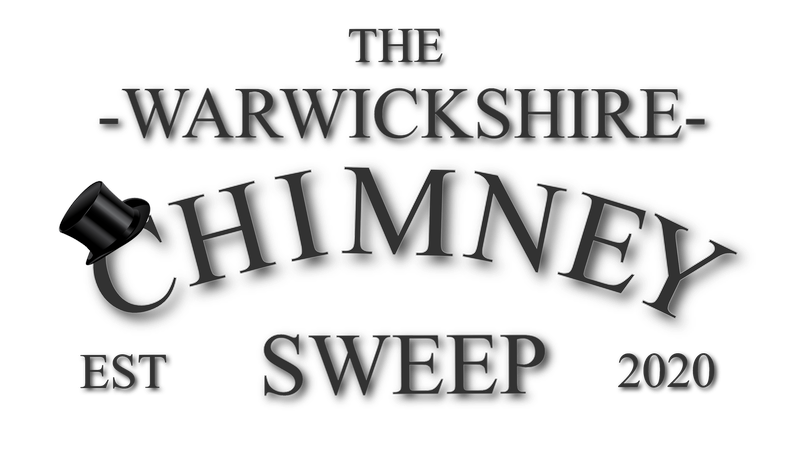FAQ'S
Warwickshire chimney sweeps advice, frequently asked
questions & problem solving
Why do I need to have my chimney/flue swept?
Chimneys need to allow free passage of the poisonous products of combustion. Regular cleaning will remove soot and creosote, helping prevent dangerous chimney fires. Cleaning your chimney will also increase the efficiency of some appliances. In addition to this, bird nests, cobwebs and other blockages will be removed.
How frequently does my chimney need sweeping?
The sweeping frequencies below are for guidance only. Frequency will depend on a number of factors including: the type of chimney, the fuel burnt, the appliance used, frequency of use, and the moisture content of any wood fuel used. Warwickshire chimney sweeps will be able to advise you on sweeping frequencies during your appointment and will be happy to send you a reminder when your chimney is due for its clean.
Smokeless fuel: At least once a year
Bituminous coal: Quarterly when in use
Wood: Quarterly when in use
Oil: Once a year
Gas: Once a year
Will cleaning my chimney make a mess?
The answer 99% of the time will be – NO! Warwickshire chimney sweeps employ a number of best practice techniques for preventing dust escapes and soot contamination. Rare exceptions include when the chimney is blocked with a bird’s nest – this particular issue can result in difficulties in containing all the dust and remenants however we have never had a complaint in 10 years.
Do I need to prepare for Warwickshire Chimney Sweeps visit?
We obviously need a clear passage to the chimney and sufficient space to work in and it is also advisable to clear ornaments from the hearth and perhaps from the mantelpiece too. It’s lovely if the grate and hearth are also clear of any old fuel, ash and rubbish too.
Do gas/oil flues need to be swept?
Yes. Although burning these fuels does not normally deposit soot, there are numerous other problems which can affect chimney function and sweeping can identify or solve these issues. Its interesting to note that the instances of carbon monoxide poisonings and chimney fires in countries such as Germany, where sweeping all chimneys and flues is a legal requirement, is a fraction of those in the UK.
Why do I need to see the brush out the top of the chimney?
Well, seeing the brush out the top of the chimney demonstrates to you that the flue has been swept throughout its length, and that we at Warwickshire chimney sweeps, have done our work properly.
How much does it cost to have a chimney swept?
The costs vary considerably according to the appliance or chimney. Some jobs may take longer to complete properly so expect to pay more if extra time is required, but overall we strive to be as cost-effective for you as possible.
I think I have an issue with my chimney, fireplace or stove.
In the UK there is a general lack of knowledge concerning all aspects of solid fuels, solid fuel appliances and their associated chimneys and flues. Problems are therefore not uncommon and it can be difficult to get good independent advice – Warwickshire chimney sweeps are just a phone call away and we will be glad to advise you.
I’ve just moved house – should I get the chimney cleaned?
Yes! The only kind of house-warming you want is a beer, some food and some fun not a visit from your local Fire Service to tackle a chimney fire.
Is one fuel preferable to another?
The manufacturers of certain appliances can recommend specific fuels for use with their products and this is the one you should use. If you do not know what the recommendations are there are some things that should be to be taken into consideration. As a ‘general’ fuel Warwickshire chimney sweeps recommends wood. It is carbon neutral, clean and gives off excellent amounts of heat. However, at the end of the day, some people don’t get on with wood and find coal is a much better option. If you are looking at coal, find your local approved supplier who will have the expert knowledge to guide you.
Why do I need to get the chimney swept before it is closed off?
When a chimney is closed off it can get damp. If it has not been cleaned prior to closure then there could be soot left in situ which can turn into a black acidic slurry that often soaks into the internal walls causing severe problems. If severe enough this damp slurry can penetrate through to the adjacent room where it will cause unsightly stains stains on the walls.
Do smoke marks on the wall above the fireplace indicate a problem?
Yes it could. It is often caused by smoke leaking back into the room; call Warwickshire chimney sweeps for advice.
How do I prevent birds coming down my chimney
Give us a call and we will be able to advise you on a suitable bird guards or cowling to go on top of the chimney.And just a little bit of info if you have had birds nest problems they will re nest in the same place every year so if you spend money removing them then a good bit of advice have a bird guard fitted
